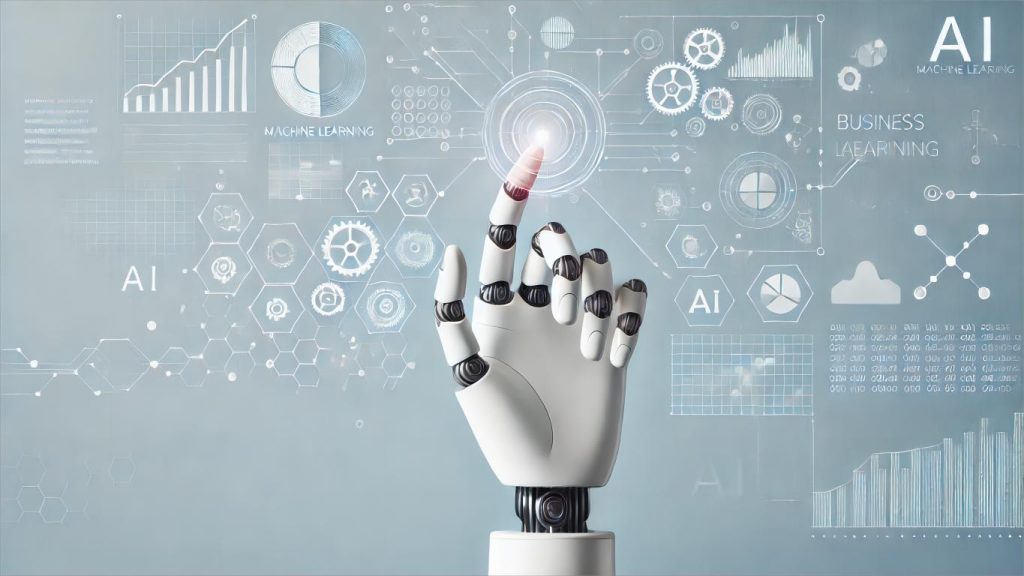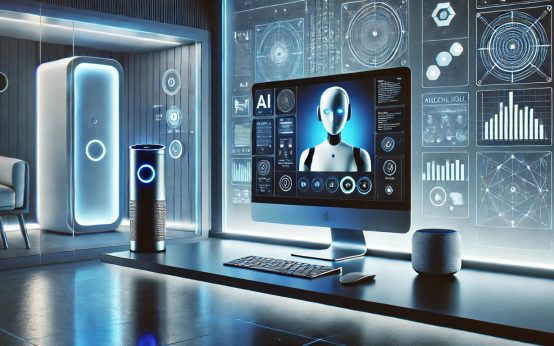In today’s fast-paced business environment, automation has become more than just a buzzword—it’s a necessity. A study conducted by McKinsey & Company in 2017 estimated that 30% of tasks performed by over 60% of occupations could be automated using artificial intelligence (AI), machine learning (ML), and robotics. Similarly, a report from PricewaterhouseCoopers (PwC) indicated that automation could replace around 30% of jobs by the mid-2030s.
With advancements in machine learning, businesses now have the tools to streamline activities that would otherwise require more time and money when handled manually. For business leaders and executives, this prompts an important question: what tasks in your organization can be automated to boost productivity and free employees from repetitive, monotonous work? Below, we’ll explore seven areas where ML can help optimize your business operations.
Streamlining General and Administrative Tasks with ML
Finance and Accounting
Spreadsheets are a staple in any finance department, but managing them manually is time-consuming. Machine learning can be leveraged to automate many spreadsheet-related tasks, reducing human error and increasing efficiency. One notable example is ANZ Bank, which automated various financial workflows using Python, significantly improving the productivity of their finance teams.
Legal, Compliance, and Operations
These fields often involve repetitive processes that are essential but time-intensive. Machine learning can automate document processing, compliance checks, and records maintenance, completing them more quickly and with greater accuracy than manual efforts.
Enhancing Human Resources and Talent Acquisition with ML
Job Candidate Matching
Recruiters can train machine learning models using data from previous successful hires to better match candidates to open roles. Additionally, machine learning can analyze employee profiles to recommend career paths, ensuring employees are placed in positions where they can thrive. Predictive analytics can also help HR departments anticipate potential employee turnover, allowing them to take proactive measures to improve retention.

Optimizing Business Intelligence and Analytics
Companies across industries can use machine learning to analyze large datasets more effectively. ML models can uncover insights and patterns much faster than human analysts, enabling businesses to identify opportunities and make data-driven decisions that enhance overall performance.
Automating Software Development with ML
Code Generation
Developers often face the tedious task of writing repetitive code. Machine learning models, given their ability to recognize patterns, can generate portions of code independently. This is especially useful in areas like web design or app development, where automation can significantly reduce time spent on basic tasks.
Debugging and Error Detection
Machine learning tools, such as intelligent programming assistants like Kite for Python or Codota for Java, help developers navigate codebases, flagging potential errors before they cause problems. Automated analytics powered by ML can further streamline error detection and system optimization.
Revolutionizing Marketing with Machine Learning
Ad Optimization
Digital marketing campaigns can benefit greatly from machine learning, as it automates pricing decisions, placement, and even the creative aspects of advertisements. Machine learning algorithms can ensure ads reach the right audience with minimal human intervention.
Personalization and Recommendations
Personalizing user experiences is essential in today’s digital world. Machine learning can automate the customization of products, emails, and marketing messages, tailoring them to individual customer preferences and behavior.
Revenue Attribution
Attributing sales revenue to marketing efforts is often complicated by human bias. By implementing machine learning, businesses can remove subjectivity and achieve more accurate insights into which marketing initiatives are driving revenue.
Boosting Sales Efficiency with ML
Customer Segmentation
Segmenting customers to target marketing campaigns more effectively used to require significant manual effort. Today, machine learning models can process vast amounts of data to identify customer groups that are otherwise hard for human analysts to detect. This not only saves time but also ensures more precise targeting.
Lead Qualification and Sales Analytics
Machine learning can evaluate current and prospective customers to provide better sales predictions, allowing companies to prioritize their resources more effectively. ML-based sales analytics tools can analyze data much faster than traditional methods like Excel, delivering real-time sales insights to help teams make informed decisions.
Improving Customer Support with ML
Chatbots and Conversational Agents
AI-driven chatbots are already ubiquitous, handling common customer queries through natural language processing. Machine learning enhances these bots by improving their ability to respond accurately and handle a broader range of inquiries.
Customer Retention
Machine learning models trained on customer data can help predict which customers are at risk of churning. This allows businesses to take preventive actions, improving customer retention and maintaining brand loyalty.
Accelerating Content Creation with ML
Automating Creative Processes
Generative AI, such as ChatGPT, has opened up new possibilities for automating content creation. From generating ideas and creating content calendars to writing articles and video scripts, machine learning tools are now able to significantly expedite these processes. This frees up time for marketers and content creators to focus on strategy rather than execution.
Email Personalization
Email marketing remains a powerful tool for reaching potential customers. While traditional templates often resulted in generic emails, machine learning can personalize emails by adding unique touches that resonate with individual recipients. This not only enhances engagement but also increases conversion rates.
Conclusion
Machine learning is transforming the way businesses handle routine tasks, offering unprecedented levels of efficiency and accuracy. As companies increasingly adopt ML-driven automation, they are freeing up human resources to focus on creativity, innovation, and strategic decision-making. In today’s competitive landscape, embracing machine learning is not just a luxury—it’s a key to staying ahead.



 The Distinction Between AI and Human Personal Assistants
The Distinction Between AI and Human Personal Assistants  27 Effective Productivity Strategies to Propel Your Business Forward
27 Effective Productivity Strategies to Propel Your Business Forward